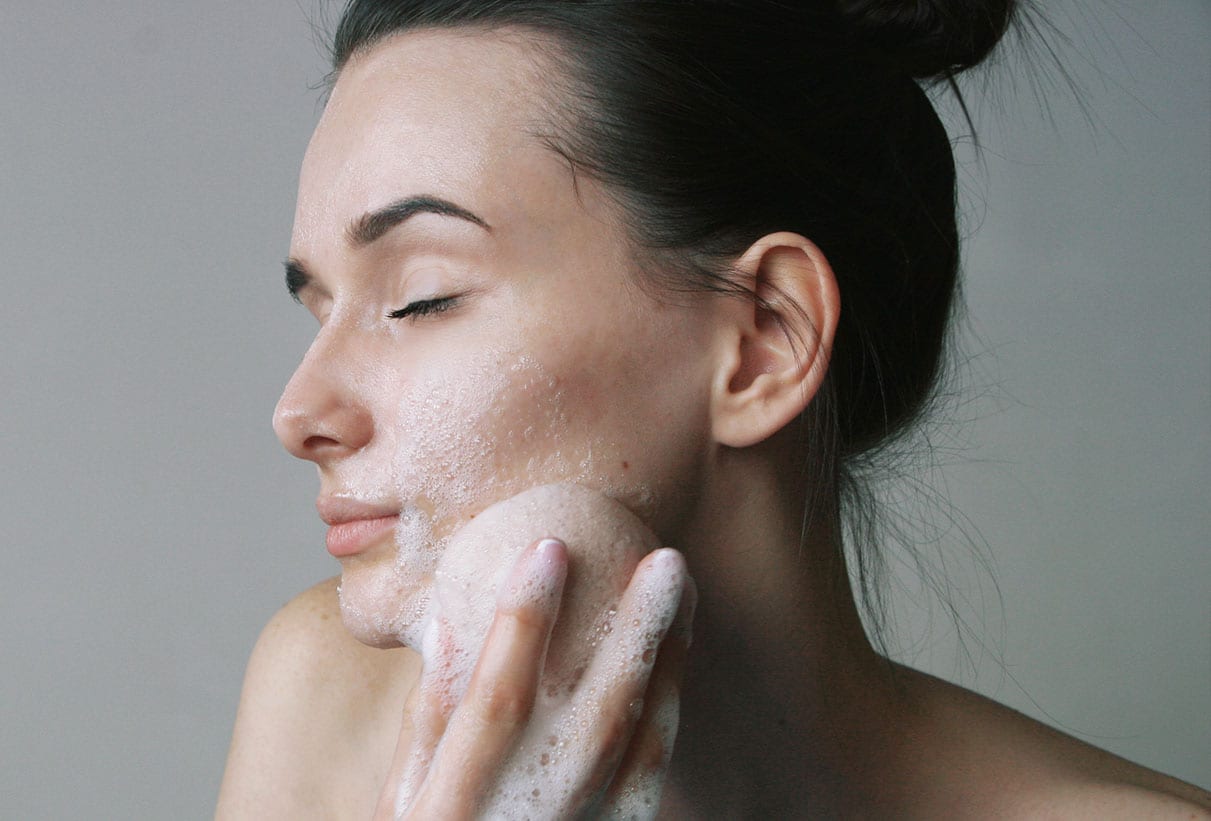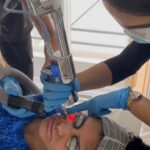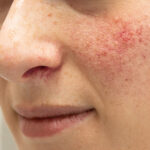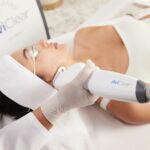
There is a common misconception that optimising your skincare routine can lead to both short and long-term clearance of cystic acne. For many of us that suffer with our skin, we hold onto the hope that using the right products for our skin in combination with eating healthily and drinking plenty of water will help sort out spots or acne. Sometimes that hope is held onto not just for weeks or months but several years before help is sought in the right place.
Unfortunately, delaying the right treatment can lead to unnecessary skin scarring as well as a prolonged negative effect on our mental well-being. After the past 6 months of trying to stay on top of my own intermittent and largely pre-menstrual acne with skincare and chemical peels, a recent bout of spots have led to some new, indented scarring. This was the impetus I needed to accept that I needed medication again and skincare was no longer going to cut it.
The skincare industry can often lead you to believe that deep, cystic acne can be cleared with skincare and products. I want to talk a little bit about why it can’t. It may make a slightly depressing read for those of you who are hoping to buy the next quick fix off the shelf, but knowledge is power and my aim is to arm you with the best unbiased medical information possible. I’m not selling or promoting any products here.
What is cystic acne?
These are the deep, red painful bumps underneath the skin surface. Rather than last a few days, they can take a long time (sometimes weeks) to heal. They can occur on the face, chest or back. This type of acne is at high risk of producing scarring (small indents or pits in the skin; read my blog on acne scarring for more info on this).
What causes cystic acne?
Acne is a disorder of the pilosebaceous unit. This means it is a condition which affects a hair follicle and its associated oil gland. When we talk about “pores”, these are the openings on the skin surface of the hair follicles. Cystic acne occurs when a “pore” or opening becomes blocked and the hair follicle ruptures. When hair follicles rupture or “pop open”, this triggers an inflammatory response in the skin’s dermis (the skin is made up of two main layers, the upper epidermis and lower dermis). Inflammation in the surrounding dermis results in nodular or cystic acne.
Why can’t skincare treat cystic acne?
Cystic acne occurs due to inflammation in the deeper skin layers such as the dermis. One of the skin’s main functions is to act as a barrier: it is there to stop things getting in and out. The very top layer of the epidermis, the stratum corneum, is made up of about 15-20 layers of dead skin cells. One of the biggest challenges in producing a cosmetic formulation is to create a product which will successfully cross this barrier into viable (living) epidermis, and in high enough concentrations once through to have any efficacy. One of the main issues with skincare is that it is very unlikely to be able to penetrate through to the deeper dermis to have a positive role in improving cystic acne. The inflammation is simply sitting too deep in the skin for any topical OTC skincare products to work. For those interested, this is also the reason that superficial chemical peels also don’t work for cystic acne as they are unable to act at a deep enough level to treat the cysts.
So what are you supposed to do for cystic acne?
If you are suffering with cystic acne then it is important to seek medical advice. Struggling alone spending hundreds of pounds on facials or skincare is unlikely to provide the answer. Options for cystic acne include a variety of oral medications that can be discussed with a family doctor or dermatologist; they can advise what is best on a case-by-case basis. When an assessment is made, they are likely to look at the extent and severity of your acne, the scarring or scarring risk you may have, as well as any effects your skin may be having on your mental health.
Take home message: cystic acne is unlikely to respond to over-the-counter skincare alone.





